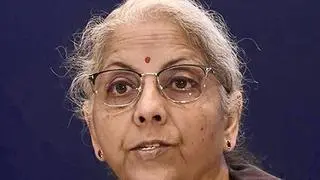Japanese Parliament is likely to give approval to the Comprehensive Economic Partnership Agreement (CEPA) with India by the end of June this year, the Japanese Ambassador to India, Mr Akitaka Saiki, has said.
India and Japan signed a Comprehensive Economic Partnership Agreement in February which is expected to give greater market access to both the countries and “the agreement is awaiting approval in Diet (Japanese Parliament). It will be submitted to the Diet shortly and we hope the approval is given in the current session by the end of June,” Mr Saiki said during his maiden visit to the city.
The agreement is expected to ensure market access for India’s pharmaceutical industry. Japan had assured to give the same treatment for Indian generics as their domestic industry.
The agreement between the two countries covers trade in goods, services and investment and is expected to reduce tariffs in about 90 per cent of the trade in the next 10 years as both Japan and India seek to diversify trade and ensure greater market access within Asia, he said.
The pact between the two countries is to ensure that the sensitive sectors for India are fully protected. These include agriculture, fruits, spices, wheat, basmati rice, edible oils, wines and spirits and also certain categories of industrial products such as auto and auto parts, he said.
Mr Saiki, who is on a three-day business visit to the city, addressed the citizens of Mumbai at the Observer Research Foundation in South Mumbai on Monday evening.
Speaking on the Indo-Japanese economic relationship, he said although trade between the two countries is expected to double in the next five years, the total trade in 2009 was very modest at $12.5 billion.
It is unthinkable that foreign direct investment to India from Japan was only $10 billion considering the size of the Indian economy, he said, adding that “We need to improve in both export and investment.”
About the presence of Japanese industries in India, he said in 2009 there were 362 and in 2010 it almost doubled to 725.
“We expect the figures to go up,” he said adding that he has been meeting with Indian industry leaders in the city.
Mr Saiki said the massive earthquake that hit Japan recently will have no bearing on the country’s investment in the Delhi Mumbai Industrial Corridor (DMIC) project.







Comments
Comments have to be in English, and in full sentences. They cannot be abusive or personal. Please abide by our community guidelines for posting your comments.
We have migrated to a new commenting platform. If you are already a registered user of TheHindu Businessline and logged in, you may continue to engage with our articles. If you do not have an account please register and login to post comments. Users can access their older comments by logging into their accounts on Vuukle.